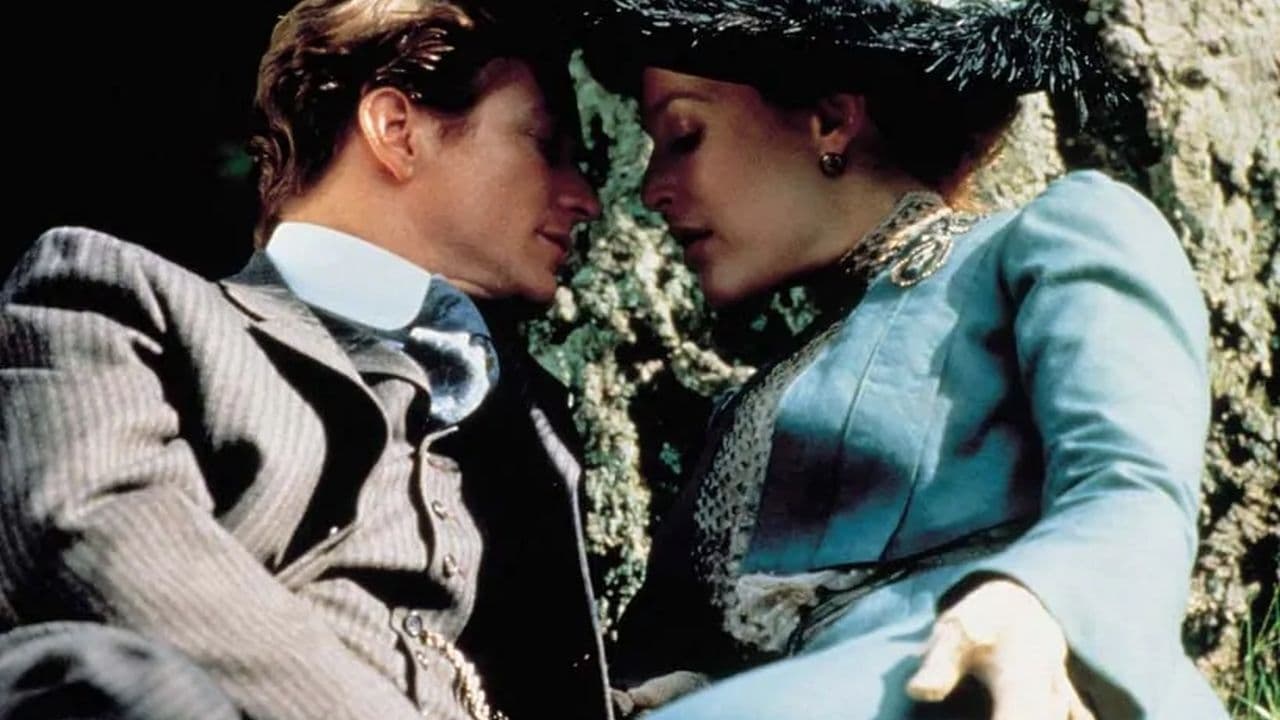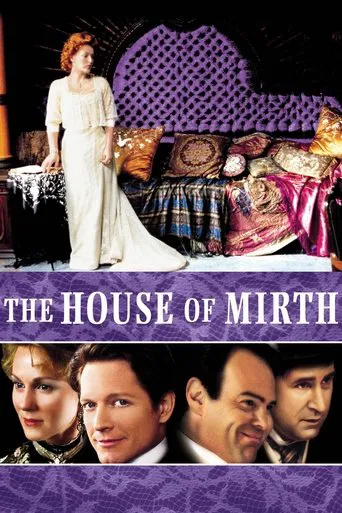

Awesome Movie
... View MoreI am only giving this movie a 1 for the great cast, though I can't imagine what any of them were thinking. This movie was horrible
... View MoreThe movie runs out of plot and jokes well before the end of a two-hour running time, long for a light comedy.
... View MoreA film of deceptively outspoken contemporary relevance, this is cinema at its most alert, alarming and alive.
... View MoreAs someone who has read the book and enjoyed it immensely I was looking forward to seeing the film. However, the very first moment of the movie, when we see Lily Bart I got really confused. I remember reading the first chapter, in which Wharton described her as stunningly beautiful, charming and blonde. I'm sorry but this was completely ruined by the actress. The way she talked and moved was extremely annoying, not to mention she was hardly beautiful, what is wrong with her mouth??? When reading the book I imagined someone like a hybrid between Grace Kelly and Veronica Lake. A graceful, sublime beauty. Not this annoying woman. The same goes for Seldon. Wasn't he supposed to be handsome too? Dear god, who the hell cast these people? This alone managed to ruin the movie for me. I would urge anyone to read the book, since it's masterfully written. But the movie is an abomination. Once again, Lily was meant to be a stunner!!!!!
... View MoreThis Terence Davies emotive period drama could be a sterling double-bill with THE GREAT GATSBY (2013, 8/10), which is the penultimate film I have watched. Last year I hold my underwhelmed apathy towards Davies' THE DEEP BLUE SEA (2011, 6/10), my first Davies film entry, but a closer DVD viewing of THE HOUSE OF MIRTH greatly galvanizes my affinity to Edith Wharton's convoluted story of a woman's inept battle with the hypocrites and the iniquitous of the well-heeled echelon near the beginning of 20th century in New York, it is the dramatic demise of an unsullied soul, there is no mirth at all. Anderson's Lily, an ill-fitted maiden of upper class, sustained by her wealthy aunt Julia's (a ghastly Bron) charity, balks between her passionate desire with a lower class lawyer Lawrence (Stoltz) and her promising marriage with an upstart Sim (LaPaglia), to whom she has no feelings at all, meanwhile a bad investment or a guileless trust to the wrong man (Aykroyd) corners her into a financial predicament, which subsequently creates discord between her and Julia and eventually will cost her the endowment of the inheritance. That's not enough, she is also manipulated to be the pull-upon by her friend Bertha (Linney), while the most excruciating fact is that Lily has the substantial evidence to give Bertha the tit-for-tat, but she can never make up her mind to do it (out of self-respect or the dread of destroying Lawrence's reputation since he is the other partaker in the affair). So Lily is a woman of dignity, even when she is utterly at the end of her tether (she has to take a menial job to earn a living, which she will be dismissed for her incompetence), she refuses to take Sim's succor, her ill-fated life succumbs to a plaintive dirge of an irreversible tragedy.Davies conducts the film adeptly with elegant costumes, shady light compositions, the interior murkiness augurs the dark-amber and midnight-blue tinctures in THE DEEP BLUE SEA, grants melancholy its most suffocating ambiance to submerge audiences' compassion, the score of classical orchestra makes the story even more poignant. The film is also a victory for its cast, Gillian Anderson (I have never watched the X-FILE series and its movie spinoffs), under the bridle of the corset, most of her time her breath is visibly confined into an asphyxiated discomfort just like her character's situation, performance-wise, it may be her once-of-a-lifetime glory, carries out the emotional roller coaster throughout, shamefully it is less acknowledged. Eric Stolz, whose tender tune undergirds his man-child debonair, shows his best form as the man who fails to save his beloved woman. Laura Linney, pretty much nails the virulence and slyness in this less-known work. Jodhi May is great in turning on the waterworks but her character overall has been skated over. Admittedly I have a predilection towards period dramas, and I may miss out some literal undertones of the proficiently organized conversations by Wharton and the dramaturge (Davies himself), but the film is so close in my top 10 list in such a strong year.
... View MoreThe House Of Mirth is a substantial, well-upholstered picture with more sinew and power than almost any other period drama of recent times... a brilliant film from a great British director. A cash-strapped single woman (Gillian Anderson) in early 20th-century New York fails to marry for love or money, and finds herself stuck with a scandalous debt that threatens to bankrupt her entirely.The film is a stunning adaptation of Edith Wharton's novel about a doomed social butterfly, elegantly crafted on a limited budget, and built around a piercing lead performance of Singer Sargent-esquire luminosity. It makes harsh points about an even harsher social order, and makes them feel fresh.
... View MoreTechnically this film was great & it was a good story. The acting was excellent, BUT... it was also an annoying film for the following reasons:1) She seemed so intelligent, how did she also make such a stupid mistake as to leave in the middle of an opera with a married man where everyone could see her go - what was she thinking?! 2) Why was Lily so damn proud as to not accept help from 2 well-intentioned friends, one of whom actually loved her & she didn't have the sense to follow her heart! Was this realistic? (Oh ya, it's a film!) 3) Why didn't she use those damning letters to re-enter the society she craved (tho why quite frankly, when it was by and large so hypocritical, is beyond me!)? 4) And to cap it all, she decides working is just too problematic so she tops herself! What a waste! 5) Why did Lawrence not chase her more if he was really interested in her? What game was he playing at? So he annoyed me!She seemed so clever at the beginning - I thought she'd find a way out of her troubles. Sorry but she was a complex & silly woman. (Yes, it's judgmental.)I'm annoyed that this film has affected me days after I saw it.7/10 from me
... View More